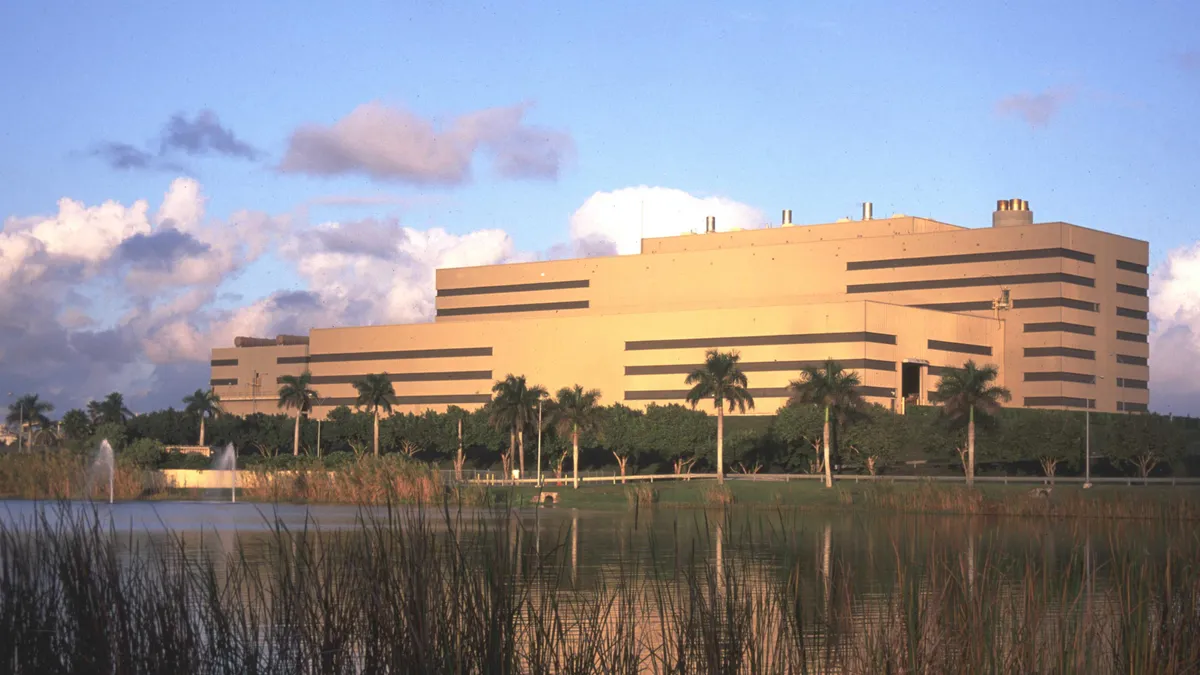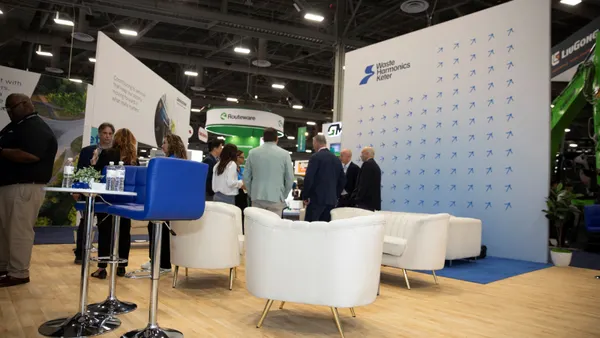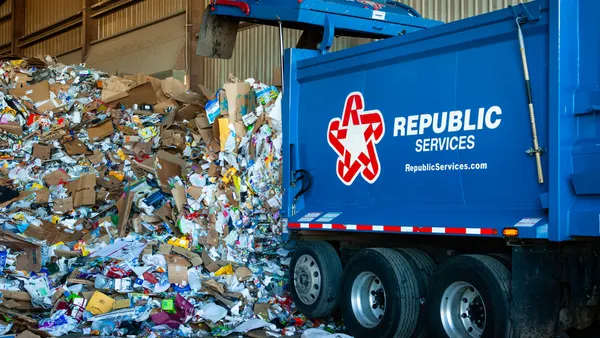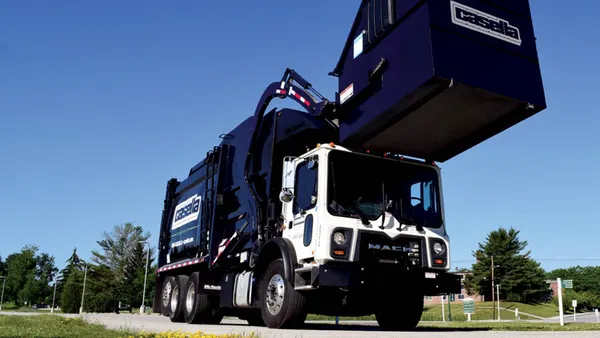Dive Brief:
- FCC Environmental Services is acquiring a waste-to-energy facility in Fort Lauderdale, Florida, from Win Waste Innovations, according to a Tuesday press release. The two companies plan to close the deal in the second quarter of this year.
- This is FCC’s first WTE facility in the United States. It already performs hauling services in Florida for more than 800,000 residences and thousands of commercial customers.
- The facility changes hands as South Florida continues to search for waste disposal solutions for a growing population. Broward County also recently voted to approve an expansion of the Monarch Hill Landfill, operated by WM, toward that end.
Dive Insight:
Houston-based FCC is part of the broader FCC Group, a Spanish company that works in the waste, water and construction industries. Its U.S. operations include more than 2,000 employees at collection, recycling and disposal assets. Last year, the company elevated Dan Brazil to lead the North American waste business.
FCC Group's larger environmental services segment operates 12 waste-to-energy facilities worldwide, with another set to begin operations soon. But the company has been looking for an opportunity to bring that expertise to North America.
“We are excited to introduce our global waste-to-energy experience to the U.S. market,” Brazil said in a statement. “This acquisition aligns with our commitment to innovation through sustainable waste-to-energy solutions that benefit both the environment and the communities we serve.”
The South Broward Waste-to-Energy facility has been operational since 1991. It can process about 824,000 tons of waste annually, generating enough power for about 41,000 local homes and businesses, per a news release. Wheelabrator Technologies, now Win Waste Innovations, developed the facility and has operated it since.
Win Waste plans to reinvest the proceeds from the sale into its core business "to drive continued growth," according to a spokesperson. While Wheelabrator was long one of the dominant waste-to-energy companies in the United States, Win Waste has been working to diversify and vertically integrate its portfolio with private equity support.
Broward County is in the midst of updating its approach to waste and recycling. In 2023, 28 of Broward County’s 31 municipalities agreed to participate in the county’s newly formed waste and recycling authority and explore long-term waste solutions. The authority is developing a 40-year master plan to address several goals, including boosting the recycling rate from 32% to 75%, a target first set by the state of Florida in 2008.
Households in Broward County each generate about 1.3 tons of waste annually, according to a 2024 waste characterization study commissioned by the county and conducted by SCS Engineers. The authors found that figure to be comparable to places like Prince William County, Virginia, which is on the edge of the Washington, D.C., metropolitan area, though higher than Prince George's County, Maryland, which is closer to the D.C. urban core.
Miami-Dade County, which neighbors Broward County, is also in the midst of identifying new disposal capacity after its longtime incinerator burned down in 2023. Officials in the two counties have at times mentioned the possibility of collaborating to identify regional disposal solutions for South Florida, though those talks appear to be highly preliminary, said Joe Kilsheimer, executive director of the Florida Waste-to-Energy Coalition.
In the meantime, many cities in the area have remained committed to using waste-to-energy as an effective disposal option, Kilsheimer said.
“Florida continues to grow,” he said. “When you have a lot of people in a limited amount of space in terms of land area, that is a recipe for growth in the waste-to-energy industry.”













